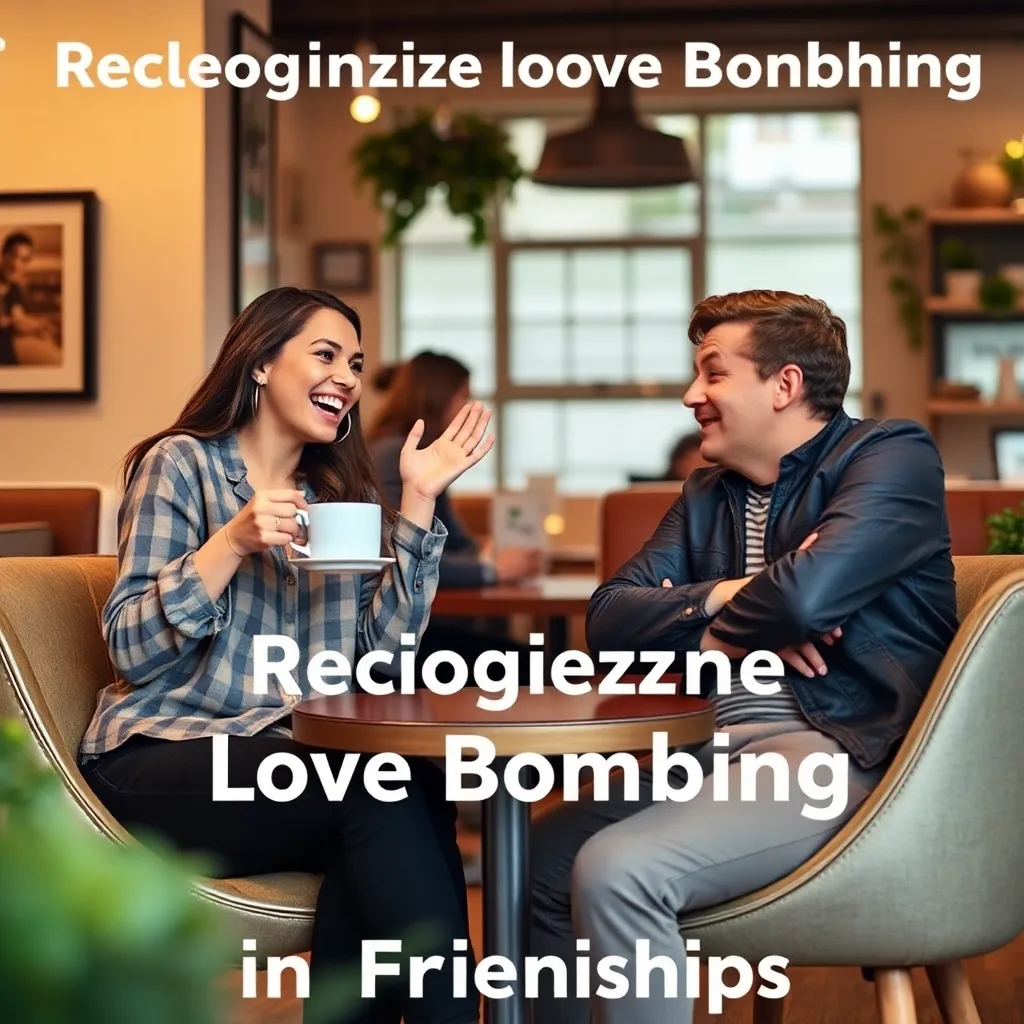Navigating friendships can be a rewarding, yet occasionally perplexing, journey, especially when you suspect manipulation may be at play. If you’ve ever felt confused or drained after interacting with a friend, you might be facing subtle tactics that undermine your well-being. Recognizing these dynamics is crucial, as they can deeply impact your emotional health and the authenticity of your connections.
Understanding the intricacies of manipulative behavior is not only empowering but essential for nurturing genuine relationships. In this article, we’ll explore 13 specific tactics that narcissists often use to sabotage friendships, offering you the insight needed to protect your emotional boundaries. By identifying these patterns, you’ll be better equipped to address them with confidence and clarity.
Our goal is to provide you with a comprehensive toolkit that supports your emotional resilience in the face of manipulation. You will learn how to spot these tactics early and respond in ways that affirm your self-worth and maintain your peace of mind. Together, we’ll uncover the subtle signs and provide you with practical solutions to foster healthier, more authentic connections.
1. Recognizing Narcissistic Behavior Patterns

In friendships, it’s crucial to be aware of subtle signs of narcissistic behavior patterns. These can often manifest as a friend who is excessively focused on their own needs, consistently dismissing your feelings or achievements.
For instance, you might notice that your friend constantly redirects conversations back to themselves, rarely showing genuine interest in your life. This can leave you feeling unheard and undervalued, which is a common experience when dealing with a narcissist.
Narcissists frequently employ manipulation tactics such as gaslighting, making you doubt your perceptions and feelings. Over time, this can erode your self-esteem and make you question your reality, creating an unhealthy friendship dynamic.
It’s important to recognize these patterns early to safeguard your emotional well-being. By identifying these behaviors, you can set boundaries or seek healthier relationships that honor mutual respect and empathy.
2. Gaslighting: Twisting the Truth

While recognizing narcissistic behavior patterns is crucial, understanding how they manifest is equally important. One common tactic is gaslighting, which involves twisting the truth to make you doubt your own perceptions. Imagine a scenario where a friend consistently denies saying something hurtful, despite clear evidence, leaving you questioning your own memory. This manipulation can deeply damage your sense of reality and self-esteem.
Gaslighting often starts subtly, making it hard to detect. Over time, however, it escalates to create a significant imbalance in the friendship, where one person’s truth becomes distorted by another’s manipulation. By continuously questioning your recollection of events or feelings, a narcissistic friend can erode your confidence in your judgment. Constantly feeling unsure can make you more dependent on the manipulator for “clarity.”
Experts suggest that maintaining a journal can serve as a powerful tool in these situations. Documenting conversations and events helps you stay grounded in your own reality and provides concrete evidence when your truth is challenged. When you feel your reality is being questioned, referring back to your notes can help reinforce your perceptions. It’s a step towards reclaiming your mental autonomy.
Identifying gaslighting is the first step, but addressing it requires courage and strategy. Establishing clear boundaries and expressing your feelings openly can start the healing process. Remember, a healthy friendship should support and uplift you, not make you question your reality. By understanding and addressing gaslighting, you take critical steps toward nurturing more authentic and supportive relationships.
3. Playing the Victim Card

Transitioning from the insidious nature of gaslighting, another tactic a narcissist often employs is playing the victim card. This tactic involves the narcissist portraying themselves as the wronged party, even amid their own manipulations. Imagine a scenario where a friend consistently cancels plans and, when confronted, turns the situation around by highlighting their own perceived hardships. Such behavior can make you doubt your own feelings and needs, ultimately prioritizing their narrative over your reality.
In these moments, it’s crucial to recognize that their victimhood is often a facade designed to evoke sympathy while diverting attention from their own actions. By constantly shifting the focus to their own struggles, a narcissist effectively deflects responsibility, leaving you feeling guilty for questioning them. It’s important to stay grounded in your experience and not be swayed by their emotional dramatics. Maintaining this awareness can prevent you from getting entangled in their web of deceit.
Expert relationship counselors suggest that setting firm boundaries is essential when dealing with such manipulative tactics. If a friend frequently plays the victim, it may be necessary to gently but firmly point out the pattern and how it affects your dynamic. Acknowledging their feelings while also advocating for your own can help maintain a fair balance in the friendship. This approach not only protects your emotional health but also sets a precedent for healthier interactions.
Ultimately, recognizing and addressing the use of the victim card can empower you to foster more authentic and balanced connections. It’s a reminder that while empathy is important, it should not come at the cost of your own emotional well-being. By keeping these dynamics in check, you can cultivate friendships that are genuinely supportive and reciprocal.
4. Love Bombing: False Affection

In the intricate web of manipulation, narcissists often employ love bombing to sabotage friendships, showering you with an overwhelming amount of affection. This tactic can feel intoxicating, as if you’ve found a friend who truly values you more than anyone else ever has.
Initially, you might find yourself overwhelmed by their attention, wondering how you ever managed without their constant affirmations. However, this excess of affection is often a mask, designed to create a dependency on their approval and validation.
Consider the friend who suddenly becomes your biggest fan, bombarding you with compliments and gifts. This can create a sense of obligation, making it difficult to see their actions as anything but genuine.
Over time, as the initial intensity fades, you may notice their affection being strategically withdrawn, leaving you craving the validation they used to provide. Experts suggest that recognizing this pattern is crucial to protecting your emotional well-being.
Ultimately, understanding the manipulative intent behind love bombing allows you to create distance and protect yourself from emotional exploitation. By staying grounded in reality and valuing authentic connections, you can navigate friendships with greater confidence and clarity.
5. Isolation Tactics in Friendships

Narcissists often employ isolation tactics to create a sense of dependency in friendships. By subtly discouraging you from spending time with others or making you feel guilty for having other friendships, they aim to become your sole focus.
Imagine a friend who constantly questions your other relationships, leaving you feeling isolated and confused. This is a classic sign of isolation tactics, where the narcissist seeks to control your social interactions to maintain power over you.
Experts suggest that confronting these behaviors early on can help prevent further damage. It’s crucial to set firm boundaries and communicate openly with all your friends to retain a healthy social circle.
In one case, a woman found that her narcissistic friend would always make excuses to avoid group gatherings, subtly isolating her from the rest. Recognizing this pattern helped her to take proactive steps in maintaining her other friendships and not fall prey to these tactics.
It’s essential to remember that a healthy friendship allows for individual autonomy and encourages a diverse social life. By identifying and addressing isolation tactics, you can nurture a more balanced and fulfilling social environment.
6. Exploiting Personal Insecurities

Building on isolation tactics, narcissists often exploit personal insecurities to sabotage friendships. They have an uncanny ability to pinpoint what makes you feel vulnerable and will use this knowledge to disarm you. Imagine sharing a sensitive detail with a friend and later hearing it twisted in a conversation to demean you. This tactic not only breaks down your self-esteem but also creates a dependency on the narcissist for validation.
In these scenarios, it’s crucial to recognize the pattern and protect your emotional boundaries. For instance, if you notice a friend consistently bringing up your insecurities in a hurtful way, it’s a red flag. Discussing these feelings openly might help, but it’s essential to evaluate whether this friendship truly supports your well-being. Narcissists can often masquerade as supportive friends while subtly eroding your confidence.
To counteract this, focus on strengthening your self-worth and surrounding yourself with people who uplift you. Engaging in activities that reinforce your positive traits can significantly bolster your self-esteem. If you’re aware of a friend using your insecurities against you, consider limiting how much personal information you share with them. By setting these boundaries, you can gradually reduce their influence on your emotional state.
Ultimately, the goal is to cultivate a circle of friends who respect and cherish you, free from manipulation. By being mindful of how others make you feel about yourself, you can better assess the health of your relationships. Remember, a true friend will never exploit your insecurities but will instead help you grow beyond them. This awareness is a powerful tool in maintaining fulfilling and supportive friendships.
7. Pathological Lying Strategies

Narcissists often employ pathological lying strategies to distort reality and maintain control over friendships. They might weave intricate webs of deception, making it challenging for friends to discern the truth. An example might be a friend who consistently exaggerates their achievements to make themselves appear superior. Such behavior can lead to feelings of inadequacy and confusion for those who are unwittingly ensnared in their tales.
In these scenarios, it’s not uncommon to feel a sense of betrayal once the lies unravel. Friends may initially dismiss minor exaggerations, but over time, the accumulation of falsehoods can erode trust and connection. To manage this, it’s crucial to remain observant and question inconsistencies in stories, no matter how minor they seem. Acknowledging the pattern can help you maintain clarity and protect your emotional well-being.
Experts suggest setting boundaries as a practical way to counteract such manipulation. By clearly defining what you will and won’t tolerate, you can create a safer space for yourself. Confronting a narcissist about their lies can be challenging, but it is a necessary step in preserving your self-respect and integrity. Remember, your mental health is paramount, and distancing yourself from deceitful influences is sometimes the healthiest choice.
Ultimately, understanding these pathological lying strategies deepens your awareness of how narcissists operate within friendships. By recognizing these patterns, you empower yourself to make informed decisions about who you allow into your inner circle. As you become more adept at identifying such tactics, you foster healthier, more authentic connections with those who truly value honesty and transparency.
8. Triangulation: Creating Rivalries

In the complex tapestry of relationships, narcissists often employ the tactic of triangulation to create rivalries among friends. This involves introducing a third person into a friendship dynamic, often to incite jealousy or competition. By comparing friends against each other, they manipulate emotions and create a sense of insecurity. For instance, a narcissistic friend might continuously praise another friend in front of you, subtly implying you’re not measuring up.
The motivation behind triangulation is to maintain control and keep friends vying for the narcissist’s approval. This can lead to a toxic environment where friends feel pitted against one another. Over time, the constant need to compete for attention can erode trust and camaraderie. It’s crucial to recognize these patterns early to prevent long-term damage to your friendships.
Experts suggest that setting clear boundaries is an effective way to counteract triangulation. Communicating openly with your friends about how such tactics make you feel can also help dismantle the manipulative dynamic. Additionally, fostering direct communication with all parties involved can reduce misunderstandings and restore balance. Remember, genuine friendships thrive on mutual respect and understanding, not competition.
Ultimately, while a narcissist’s triangulation tactics can be disruptive, they don’t have to be a permanent fixture in your friendships. By staying mindful and proactive, you can safeguard your relationships from these manipulative games. This not only strengthens your current friendships but also builds your resilience against future manipulative tactics. Remember, the power to maintain healthy relationships is always within your reach.
9. Silent Treatment Manipulations

The silent treatment is a classic tool in a narcissist’s arsenal, often used to wield power over friends. This manipulation tactic involves the deliberate withholding of communication, leaving the other person in a state of confusion and anxiety.
Imagine a scenario where you’ve had a minor disagreement with a friend, and suddenly, they go completely silent. You are left questioning what happened and whether the friendship is in jeopardy, creating an emotionally exhausting situation.
Experts suggest that the silent treatment is not just about ignoring someone; it’s about controlling the narrative and instilling doubt. This behavior can cause you to feel insecure and desperate for resolution, which is exactly what the narcissist hopes to achieve.
To counteract this manipulation, it’s essential to recognize that the silence is not a reflection of your worth or the value of your friendship. Instead of chasing after the narcissist for answers, focus on maintaining your emotional balance and setting boundaries.
By taking control of your emotional responses, you can reduce the impact of the silent treatment and maintain your emotional well-being. Remember, a healthy friendship thrives on communication and mutual respect, not manipulation and control.
10. Projection: Blaming Others

Projection is a common tactic where a narcissist will shift their own undesirable traits onto others, effectively blaming them for things they are guilty of themselves. Imagine a friend accusing you of being dishonest when, in fact, they are the ones who often twist the truth.
This behavior can leave you feeling confused and defensive, often questioning your own integrity. It’s crucial to recognize this tactic early on to protect yourself from unnecessary guilt and preserve your self-esteem.
Experts suggest that understanding projection can help you maintain a clear perspective on your own actions and intentions. By acknowledging when someone is projecting, you can respond with confidence rather than falling into the trap of self-doubt.
In friendships, addressing projection can lead to healthier dynamics, where boundaries are respected and accountability is shared. If a friend consistently projects onto you, it may be worth discussing this openly or reconsidering the relationship if it becomes toxic.
11. Using Criticism as Control

Narcissists often wield criticism as their weapon of choice to maintain control in friendships. This tactic subtly shifts power dynamics, leaving the other person feeling insecure and dependent on the narcissist for validation.
In many friendships, a narcissist might disguise their criticism as “helpful advice” or “constructive feedback”. For example, they might constantly point out your perceived flaws under the guise of wanting to help you improve, all while eroding your self-esteem.
Understanding this pattern is crucial because it helps you recognize when a criticism is less about your growth and more about keeping you off-balance. It often involves a subtle undermining of your achievements, making you doubt your abilities and rely on their approval.
To effectively counter this manipulation, cultivate a habit of seeking validation from within or from other supportive friends.
12. Feigning Empathy for Gain

In the realm of friendships, narcissists often feign empathy to manipulate those around them. They might appear genuinely interested in your problems, only to later use this information for their own personal gain.
Consider a friend who seems to always listen intently when you share your struggles, but later uses this against you during disagreements. This tactic not only erodes trust but also leaves you feeling vulnerable and exploited.
Often, narcissists will express what seems like sincere concern, only to later dismiss your feelings as insignificant. This inconsistency can lead to emotional confusion, making it hard to discern their true intentions.
Experts suggest that genuine empathy involves consistent actions, not just comforting words. When assessing a friend’s empathy, look for a pattern of support rather than sporadic, self-serving gestures.
Ultimately, recognizing these manipulative patterns allows you to make informed decisions about the value and health of your friendships. By staying aware and setting boundaries, you can foster genuine connections that are mutually supportive and respectful.
13. Breaking Free from Narcissistic Ties

Breaking free from narcissistic ties requires a blend of courage and strategic action. It often involves recognizing the subtle yet destructive patterns that have infiltrated your friendship, leaving you emotionally drained and confused.
Imagine a scenario where your friend constantly dismisses your feelings, only to later apologize with insincere gestures that keep you hooked. This cycle of manipulation can be disruptive, but identifying it is the first step toward reclaiming your emotional well-being.
Experts suggest setting firm boundaries as a crucial step in disentangling from a narcissist’s grip. Dr. Lisa Turner, a renowned psychologist, emphasizes the importance of clearly communicating your limits and understanding that it’s okay to distance yourself from toxic influences.
Rebuilding your sense of self is equally vital in this journey. By fostering relationships with those who genuinely appreciate and support you, you can begin to heal and rediscover your own worth.
Ultimately, freeing yourself from a narcissistic friendship allows you to open up space for healthier connections. Embrace this opportunity to nurture relationships that are based on mutual respect and genuine care.
Conclusion: Creating Beautiful Outdoor Spaces
In navigating the complexities of friendships, understanding the 13 manipulation tactics employed by narcissists is essential. From gaslighting and guilt-tripping to playing the victim and love-bombing, these strategies can subtly erode trust and self-worth. Others, such as triangulation, silent treatment, and blame-shifting, further entrench toxic dynamics, while tactics like charm, projection, and passive-aggression keep one perpetually off-balance. Recognizing these behaviors is the first step toward safeguarding your emotional well-being.
To take immediate action, reflect on your friendships and identify any patterns that align with these tactics. Open a dialogue with trusted friends or a counselor to gain clarity and support. As you embark on this journey, bookmark this article as a valuable resource to revisit whenever you need a refresher or reassurance.
Looking forward, remember that true relationship success is built on mutual respect, understanding, and authenticity. By empowering yourself with knowledge and taking proactive steps, you pave the way for healthier, more fulfilling connections. Keep this guide close as a reminder of your strength and commitment to nurturing positive relationships. Embrace the journey with confidence, knowing that your awareness is the key to thriving friendships.
